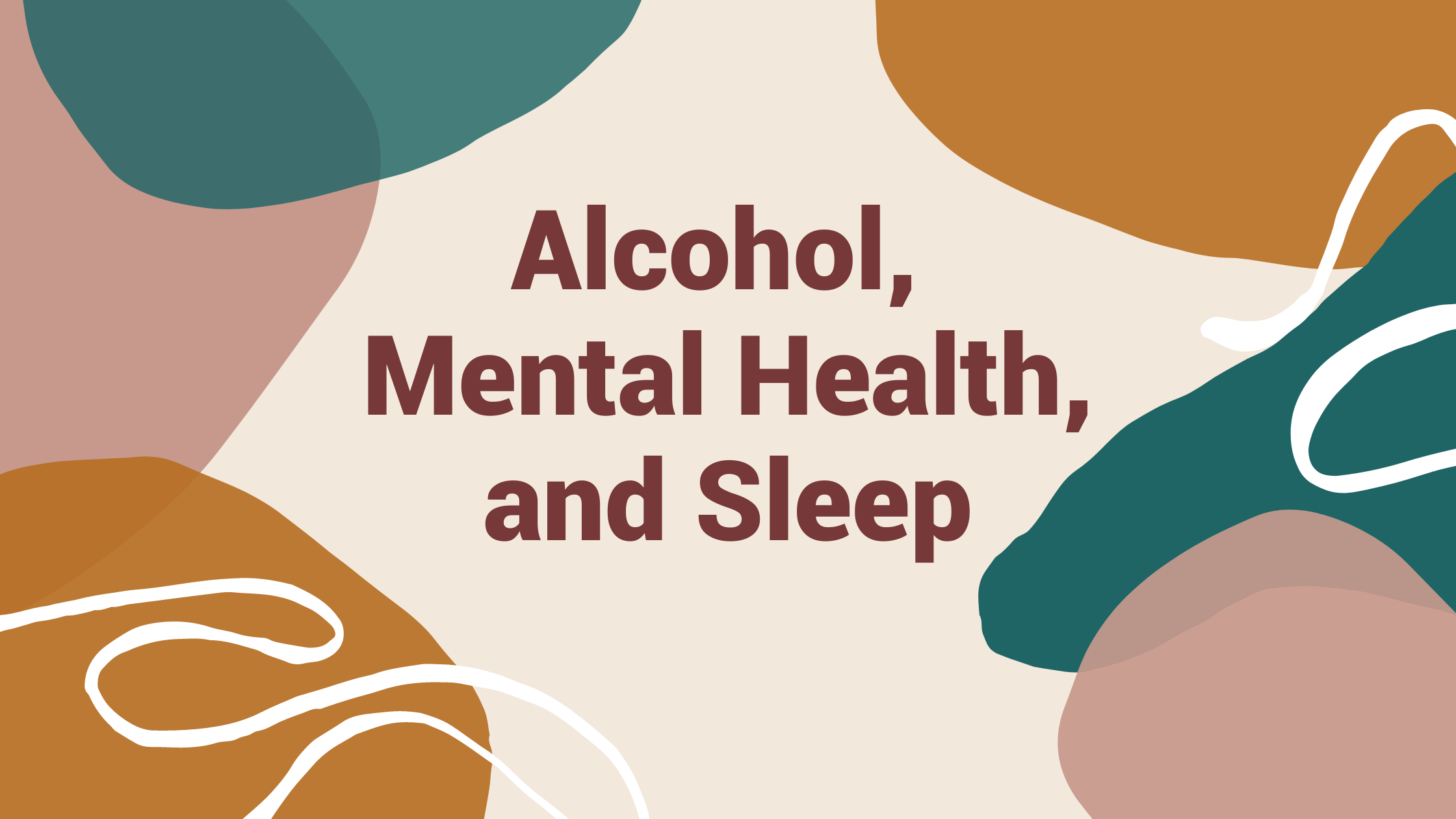
Alcohol is viewed in most of the world as a socially acceptable intoxicant. That’s a bit ironic, considering the physically and mentally devastating effects of booze on a human. While small amounts of alcohol can help get you feeling loose, repeated or heavy use can seriously affect your overall mental health. We’ll explore those effects, as well as alcohol’s impact on sleep, in this post to observe Alcohol Awareness Month this April.
How Does Alcohol Affect Mental Health?
Alcohol use always starts innocently enough. It begins as a way to help relax and blow off steam or to help fit in during social situations. On the surface, nothing seems inherently wrong with this. And for many, that’s where alcohol stays.
But for others, alcohol becomes a coping mechanism. Since alcohol can lower their inhibitions, it can help them feel more relaxed and confident. It’s a way to deal with uncomfortable feelings like anxiety or depression. This can even be true of social drinkers – alcohol can help them cope with anxiety during social situations, making them feel better in the moment.
Doing that too often, though, can lead to some problems. Your brain is a delicate organic wonder that exists in a careful equilibrium. Chronic or heavy alcohol use can negatively affect the brain, leading to problems like memory loss. Paradoxically, alcohol use can eventually exacerbate the exact same mental health issues that users used it to combat in the first place.
While ceasing alcohol use can reverse some of the effects of chronic drinking, it won’t undo them all. Chronic alcohol abuse can even permanently shrink parts of the human brain – that’s pretty scary.
Improve Your Overall Wellness to Boost Mental Health
Instead of using alcohol as a coping mechanism to cover feelings of anxiety or depression, consider attacking those same feelings at their source. Research has shown that incorporating a contemplative practice into your daily routine may help resolve these kinds of feelings.
One easy way to incorporate these practices into your life is through mindfulness meditation. And while you can set out on your journey into mental wellness alone, it can be helpful to have a guide. If you want to learn more about mindfulness, our founder, Amanda, can help coach you. Learn more about Amanda and her coaching style when you schedule a free consultation.
Another option you may want to consider if your alcohol usage is boarding addicted or dysfunctional to your life is plant, animal, or fungi medicine. Check out Amanda’s Instagram post on the topic. Many often think you’re taking one substance and replacing it with another, but that isn’t the case unless you allow it to be. When used under the guidance of a professional, these modalities can be effective in helping people recover from addiction by addressing the root causes of their addiction and changing their patterns of thinking and behavior. Again, reach out to Amanda to discuss over a 2-hour free call!
Alcohol and Sleep
Alcohol’s effects on your brain and mental health are just the tip of the iceberg. Many Americans use alcohol to self-medicate, particularly when it comes to sleep problems like insomnia.
Since alcohol is a central nervous system sedative, it can help those suffering from problems like insomnia fall asleep faster than they would if they were sober. However, although tucking yourself in with a booze blanket will help you pass out, it will actually decrease the overall quality of sleep you receive. According to experts:
- Low amounts of alcohol (less than 2 drinks for men and 1 for women per sleep cycle) decrease sleep quality by nearly 10%.
- Moderate levels of alcohol (2 drinks for men and 1 for women) can lower sleep quality by a quarter.
- More than 2 drinks for men and 1 for women per night was associated with a nearly 40% decrease in sleep quality.
Alcohol and REM Sleep
The main way alcohol interferes with our sleep quality is by messing with our REM cycle. During REM sleep, our brains dream and consolidate memories. Some researchers consider REM sleep among the most important parts of our sleep cycle.
If we don’t get enough REM sleep, we tend to feel tired and sleepy the next day. This, in turn, can cause us to take coffee and other stimulants during the day, forcing us to drink again to mellow out at bedtime. This feedback loop is easy to fall into and particularly destructive.
Fortunately, you don’t need to let alcohol ruin your sleep cycle. A natural, plant-based solution may help you sleep without using alcohol.
Trust Relive Everyday to Provide Safe and Reliable CBD Solutions
Instead of using alcohol to help soothe anxiety or improve your sleep, try CBD. Some research has shown that CBD may be an effective way for those suffering from anxiety and sleep problems to find relief. Add small doses of CBD to your morning routine to help avoid anxiety during a stressful day. If using CBD for sleep, try taking a moderate dose about 45 minutes before you want to doze off.
At Relive Everyday, we’ve been helping connect people with high-quality CBD products for four years. Our products utilize broad-spectrum CBD oil extracted from American-grown hemp plants. They test nondetectable for THC, making them non-psychoactive. Explore our full selection of infused products here to learn more about how CBD can help.